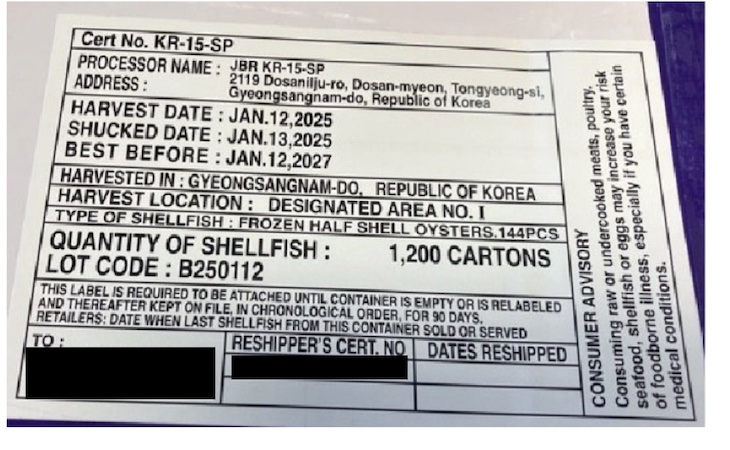The FDA is warning restaurant sand retailers not to sell or serve frozen raw oysters from Korea because they could be contaminated with norovirus. They were sold in five states: Arizona, California, Colorado, Montana, and Utah. They may have been distributed in other states as well. There are illnesses associated with the consumption of these oysters. On July 16, 2025, the Utah Department of Agriculture and Food informed the FDA of an outbreak of norovirus illnesses associated with consumption of certain oysters from the Republic of Korea with Lot Code: B250112.

The oysters were sold frozen, raw, and on the half-shell with lot code: B250112, harvested from Designated Area No. 1 in the Republic of Korea (ROK) on January 12, 2025, and processed by JBR KR-15-SP in Tongyeong-si, ROK. The photos is an example of a product tag that would be included on the cartons of the oysters.
Wang Globalnet of Vernon, California recalled the oysters. Shellfish are filter feeders. That means they filter water through their gills and can trap pathogens such as norovirus in their flesh.
Food contaminated with norovirus will look, smell, and taste normal. The pathogen can cause illness if consumed. People with compromised immune systems or who have chronic health conditions are at risk for potentially serious illness from norovirus.
Symptoms of norovirus usually appear quickly, within 12 to 48 hours. The most common symptoms are diarrhea, vomiting, nausea, and stomach pain, along with fever, headache, and body aches. Dehydration can occur if fluids cannot be kept down.




